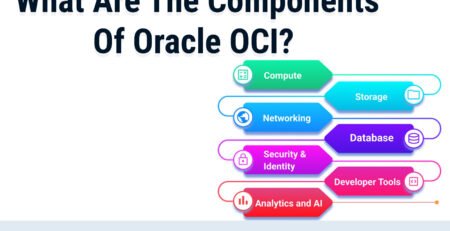Unveiling the RBI’s Stamp of Approval: A Look at India’s Recognized Payment Gateways
Introduction
With Fintech at its center, the dynamic financial landscape of India is going through a dramatic upheaval. The government’s goal for a cashless society and the sizeable population have fueled the development of digital payments.
The Reserve Bank of India (RBI) plays a crucial role in this period of financial evolution by endorsing payment aggregators that follow strict requirements. This article examines recent advancements in India’s digital payments industry with a particular emphasis on payment gateways that have received RBI approval.
Factors Shaping the Digital Revolution
The rise in digital transactions across the Indian subcontinent is the result of a number of causes. A move towards digital substitutes was sparked by the 2016 Demonetization Bill. By 2021, there will be a startling 750 million smartphone users, dramatically increasing the availability of electronic payment systems.
The “5 Cs”—Coverage, Convenience, Confidence (security), Convergence (interoperability), and Cost—were highlighted by the RBI, which offered infrastructure sanctions to support innovation in the Fintech industry. The use of contactless and cashless purchases was hastened by the global epidemic.
An Important Step: RBI’s In-Principle Approval
The RBI made history on February 15, 2023, when it gave 32 current payment aggregators “in-principle approval” to operate as online payment aggregators. The central bank’s decision to simultaneously approve applications from 19 new businesses shows its commitment to closely observing and regulating the world of digital payments.
Understanding of Payment Aggregators
Payment aggregators is essential for enabling Internet business transactions. They act as middlemen, allowing merchants, e-commerce websites, and mobile apps to accept several payment methods from clients without the need for separate payment integration systems from the merchants.
The Titans of Approval
Major players include Amazon (Pay) India Pvt Ltd, Paymate India Ltd, Razorpay Software Pvt Ltd, Pine Labs Pvt Ltd, and Zomato Payments Pvt Ltd among the 32 companies granted in-principle authorization. These organizations are now in a position to make a significant contribution to India’s development of digital payments. However, the RBI is still considering applications from an additional 18 active payment aggregators, highlighting the thorough vetting the regulatory body exercises.
| List of Existing Entities Which Have Received In-Principle Authorization | |
| Sr. no | Name of the entity |
| 1 | 1Pay Mobileware Private Limited |
| 2 | Airpay Payment Services Private Limited |
| 3 | Amazon (Pay) India Private Limited |
| 4 | Cashfree Payments India Private Limited * |
| 5 | Computer Age Management Services Limited |
| 6 | Digiotech Solutions Private Limited |
| 7 | Easebuzz Private Limited |
| 8 | Finlogic Technologies India Private Limited |
| 9 | Futuretek Commerce Private Limited |
| 10 | Google India Digital Services Private Limited |
| 11 | IndiaIdeas.com Limited |
| 12 | Infibeam Avenues Limited |
| 13 | Innoviti Payment Solutions Private Limited |
| 14 | In-Solutions Global Limited |
| 15 | Lyra Network Private Limited |
| 16 | Mpurse Services Private Limited |
| 17 | NSDL Database Management Limited |
| 18 | NTT DATA Payment Services India Limited |
| 19 | Open Financial Technologies Private Limited |
| 20 | Paymate India Private Limited |
| 21 | Paysharp Private Limited |
| 22 | Phi Commerce Private Limited |
| 23 | Pine Labs Private Limited |
| 24 | Razorpay Software Private Limited * |
| 25 | Reliance Payment Solutions Limited |
| 26 | SRS Live Technologies Private Limited |
| 27 | Stripe India Private Limited |
| 28 | Tyche Payment Solutions Private Limited |
| 29 | Vay Network Services Private Limited |
| 30 | Worldline ePayments India Private Limited |
| 31 | Xsilica Software Solutions Private Limited |
| 32 | Zomato Payments Private Limited |
The Returnees and Second Chances
Notably, Freecharge Payments Technologies Pvt Ltd, Paytm Payments Services Ltd, PayU Payments Pvt Ltd, and Tapits Technologies Pvt Ltd had their applications returned by the RBI. Despite this setback, these entities have the opportunity to reapply within 120 days from the date of return, showcasing the regulatory flexibility aimed at fostering a robust and diverse digital payments ecosystem.
| no | Name of the entity | Remarks |
| 1 | Freecharge Payment Technologies Private Limited | Application returned on 10.02.2023 |
| 2 | PayTM Payments Services Limited | Application returned on 25.11.2022 |
| 3 | PayU Payments Private Limited | Application returned on 10.01.2023 |
| 4 | Tapits Technologies Private Limited | Application returned on 10.02.2023 |
Conclusion
The RBI’s in-principle approval marks a significant stride towards creating a secure and efficient digital payments environment in India. As the nation embraces the Fintech revolution, the role of payment aggregators becomes increasingly vital. The blend of established entities and new players promises to bring innovation, competition, and enhanced services to consumers and businesses alike. The regulatory framework put in place by the RBI reflects a commitment to balancing innovation with security, ensuring a sustainable and inclusive digital financial landscape for India.












